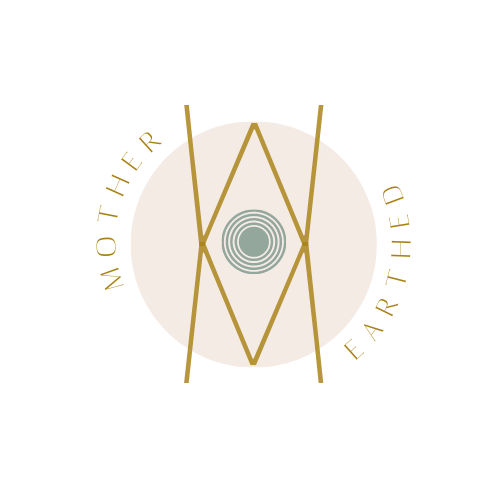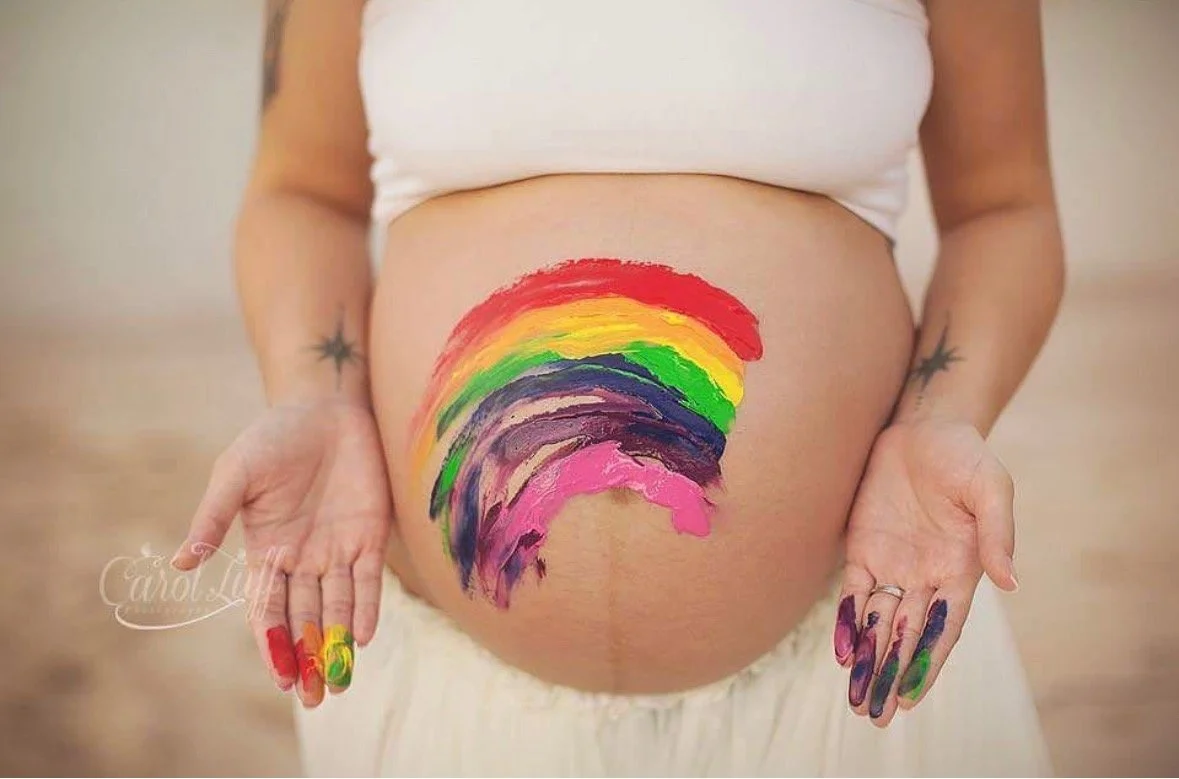Nothing Blank About These Canvases
Written February 8, 2019Photo courtesy of Carol Luff
Three years ago, while pregnant with my third baby, I went to a talk by a clinical psychologist on building children’s self-esteem. While her discussion was insightful and I took away a few tips, she started off by saying that our babies remember nothing of life before they are born and come into this world as little blank canvases. I seem to have gone blank for a moment, my mind wandering off into another world, while she carried on.
There was a whole palette of colour missing from this picture.
As I sat there rubbing my own belly and scratching my head, I just kept thinking that a mother believing that she was merely a vessel for a mindless being for nine months would mean missing out on daily opportunities to simply talk to this little person, giving them data on the world they were about to join, while simultaneously receiving information from the baby she was yet to meet. Missed chances to awaken little taste buds to the flavours of family traditions while swimming in the amniotic juices. Unseen moments to watch a bond start forming between siblings as they sing or talk to their little brother or sister long before they ever lay eyes on each other.
A mother may indeed be something of a vessel, but this particular psychologist’s view failed to take into account the ever-expanding body of knowledge that every unborn child is, in fact, “learning” from the moment of conception as its mother’s thoughts and emotions set off unique chemical reactions which impact cell memory and gene expression. It also fails to take into account another body of knowledge that our babies also bring cellular information from past lives.
This blank canvas belief also, sadly, gives our society permission to take very little responsibility for ensuring that mothers are emotionally and physically supported during their pregnancies and births. Support that could very well change the foundational development of a little being.
As Anna Verwaal says in her beautiful Ted Talk From Womb to World - The Journey That Shapes our Life,
“All of us were marinated in amniotic fluid filled with the flavours of our mother’s emotional life and state of mind… Whatever those flavours are becomes the blueprint of our life. It is not only what a woman eats and drinks, but everything she feels and experiences in her environment that has an impact on her baby’s future health, intelligence and wellbeing.”
A few weeks after this talk, I found myself waiting for my 20-week check up. A scan that would reveal pumping heart chambers, brain hemispheres and a tiny being gulping amniotic fluid. And while I waited, rubbing my belly, the receptionist took a call from a woman who had booked an elective c-section. The mother wanted to move her c-section a week earlier. As my obstetrician walked past, the receptionist passed on the request, explaining that Mrs XYZ was “Tired and wants to just have this baby now.” There was a part of me that wanted to grab the phone and say, “No please, wait, keep that baby in!” Every part of me wanted to tell this mom to treasure every week her baby was safely nestled inside her, that the fatigue she would feel after major surgery with a newborn placing a whole new unpredictable set of physical demands on her would make her wish she’d bottled hip flasks of her former energy to swig back before her morning shower (if she had the chance for a morning shower). But there was a much bigger picture she was also not seeing.
Bearing in mind that an elective c-section ususally takes place two weeks before a baby’s (40 week) due date to ensure that natural labour does not start (some doctors do them as early as 37 weeks), when one considers that a full-term pregnancy is in fact 42 weeks, this mother was essentially asking that her baby be born a month early… a month of precious lung and brain development.
A part of me also knew that if a mother’s body produces a chemical response to every thought, then it would follow that a baby taking on the message of “I’m so over this” would be in a different state of being to one who’s mother was drawing closer to her due date and saying: “I can’t wait to meet you little one. We’re ready when you are.”
As a new childbirth educator, my understanding of perinatal brain development and what is passed on to a child while in utero and during birth was still in its own infancy. In the years since, I continue to find myself torn between keeping mum (because no mother-to-be wants anyone, or should have anyone, telling her what to do) and a burning feeling of responsibility to enlighten women just beginning their parenting journey on research that isn’t being passed on to them by their “care” providers.
Three years ago, despite the information being passed on to the mothers at the talk I was attending, existing research by experts like Dr Thomas Verny of the Association for Prenatal and Perinatal Psychology and Health (APPPAH) and Annie Murphy Paul, science reporter and author of Origins: How the Nine Months Before Birth Shape the Rest of Our Lives painted a very different picture. In her TED talk, What We Learn Before We’re Born, Annie talks about babies treating maternal contributions as information, what she likes to call “biological postcards from the world outside”.
I know some women will read this and think, “Oh great, more mom guilt.” Perceiving this as more information to make them feel anxious about creating the “perfect” environment for their baby or guilty for any stress they experience. That’s not the intention at all. In fact, you will be pleased to know that there is, of course, more to this than meets the eye.
We are not suggesting that a perfect child emerges by providing a perfectly stress-free environment in which you walk without flinching for 40 weeks. What’s more important is that mothers have the tools to cope with stressful situations and nurture moments of relaxation. They need to know how to shift their nervous systems from the adrenaline-fuelled fight or flight mode we find ourselves in sometimes hourly - as we face deadlines, rush-hour traffic, the horror of watching an iPhone flying towards the floor, or terror as we catch a tumbling toddler - to rest and restore mode, in ways that impart early knowledge to their babies about healthy stress responses. As Annie Murphy Paul points out, a mother’s perceived stresses and fears can have long-lasting effects on their children, physically and emotionally.
Bearing that in mind, the potentially overwhelming responsibility to foster a positive environment in utero should also not fall squarely on mothers, but be a part of the collective consicousness and a collective consideration.
And I wonder… Could childbirth education that helps a pregnant mother work through anxiety and fears, as HypnoBirthing does, be one of the first great investments you put into your child’s education?
In a time when so many people foster fears of scarcity despite living in great abundance, harbour negative self-images and many people believe that we need to prepare tough children for a tough world, perhaps we should be asking ourselves how we can potentially be the solution to positive change in the world, right from the moment we dream our babies into being.
We live in such an impatient, control-driven society. A world where we deliver scan envelopes to bakers so they can whip up pink or blue “buns” for gender reveal gatherings, a time where we diarise our baby's birthday with a doctor so that it fits in with his/her schedule rather than allowing our child to have at least a small part to play (current research indicates that it is in fact hormones secreted by a baby’s lungs once they are ready, that triggers birth).
And many parents who have have subscribed to the belief that we do have some impact on our unborn children’s brains, have done so pinning hopes on piano concertos sending our progeny’s IQs soaring. Studies, however, are clearly revealing that prenatal memory, responses and the wiring of your baby's brain are affected by far more than whether or not you played Mozart Serenade No. 13 for strings in G major to your belly.
As I was researching this, while listening to Julie Gerland’s TED talk “Born a leader, education begins before birth”, the following quote popped up:
“Women is the artist of the imagination and the child in the womb is the canvas whereon she painteth her pictures. ”
And I realised that the notion of children as canvases was certainly nothing new. It has simply taken science a few centuries to study the magic of pregnancy and birth under a microscope. When one considers that your baby really is a little artwork of its own, coloured by more than a sequence of genes, perhaps we should all be doing whatever we can to respect and honour the creative process.
Watch Annie Murphy Paul and Julie Gerland’s TED Talks.

